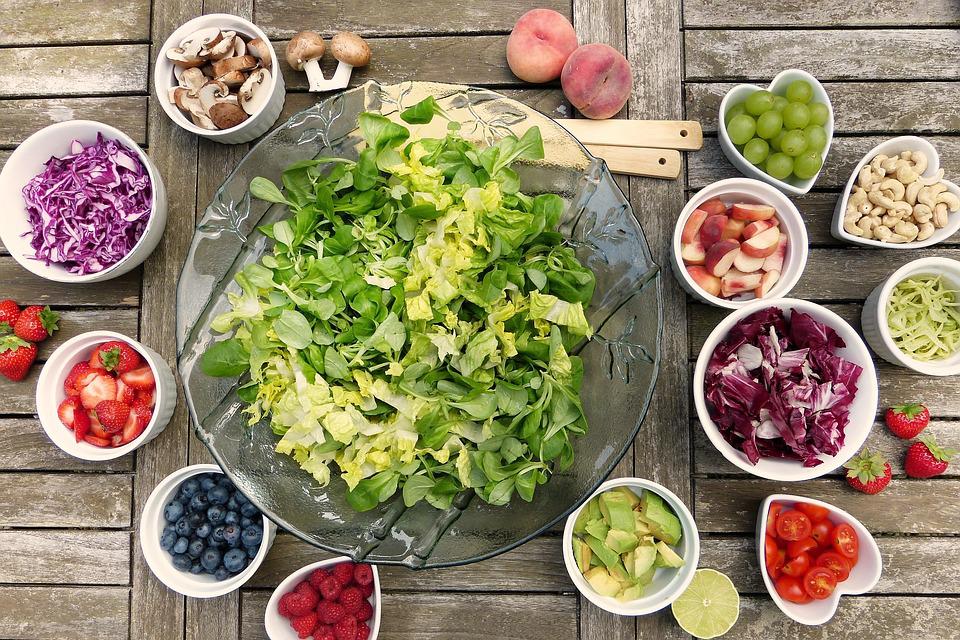
The Mediterranean diet is a delicious and nutritious diet rich in flavorful ingredients like fruits, vegetables, whole grains, and healthy fats.
An article on the website Medical News Today claims that curcumin, the active ingredient in the Indian spice turmeric, is associated with a wide range of potential health benefits. These benefits include supporting brain function, promoting heart health, and regulating blood sugar levels.
Here are a few general tips for following the Mediterranean diet: – Eat lots of fruits, vegetables, legumes, and whole grains – Limit your consumption of red meat and processed meats – Choose healthy fats, like olive oil, over other fats – Drink moderate amounts of red wine – Avoid sugary drinks and foods
The article examines the Mediterranean diet and provides instructions on how to follow it. Additionally, it discusses the potential health benefits of the diet.
What is the Mediterranean diet, exactly?
The residents of countries bordering the Mediterranean Sea, including France, Greece, Italy, and Spain are less likely to suffer from cancer and heart disease than Americans. The diet can also help you keep weight off: An American Journal of Medicine found the Mediterranean diet to be just as helpful as low-carb diets for weight loss. Those who follow it fill up on healthy fats, nuts, fruits, and veggies.
“The Mediterranean diet emphasizes fats that are good for your heart, whole grains, nuts or seeds, fruits or vegetables, legumes, and seafood,” says Cory Ruth, RDN, a registered dietitian nutritionist, women’s health expert, and CEO of The Women’s Dietitian. “It discourages refined grains, added sugar, trans fats, and processed foods.”
The Mediterranean diet is just as effective as low-carb diets for weight loss.
According to Ruth, a diet that is rich in whole grains, vegetables, and healthy fats can have various benefits such as reducing the risk of heart disease, type 2 diabetes, and dementia.
A study found that the Mediterranean diet decreased levels of C-reactive protein, an inflammatory marker associated with aging. The study also found that the diet lowered the rate of bone loss for participants with osteoporosis.
Can the Mediterranean diet help you lose weight?
The Mediterranean diet, while not specifically a weight loss system, can help with weight control, according to Ruth. This is because it focuses on adding in more fruits and vegetables, and cutting down on added sugar and processed foods.
The Mediterranean diet is superior to a low-carb diet for long-term weight loss, according to a 2016 study. That study found that people on the Mediterranean diet lost between nine and 22 pounds after a year on it, compared to those on a low-carb diet, who lost between just six and 11 pounds. In addition, a 2018 study found that participants who followed the Mediterranean diet over five years reported less weight gain and abdominal fat than those not on the diet.
Potential benefits
The Mediterranean diet has many health benefits.
Promotes heart health
There has been a lot of research into the Mediterranean diet and its ability to keep your heart healthy.
Studies show that the Mediterranean diet is associated with a lower risk of heart disease and stroke.
A study was done to see if the Mediterranean diet or a low-fat diet was better at slowing plaque buildup in arteries. They found that the Mediterranean diet was better at slowing the progression of plaque buildup.
Other research has shown that the Mediterranean diet can also help to lower levels of both diastolic and systolic blood pressure, which would support heart health.
Supports healthy blood sugar levels
The Mediterranean diet involves eating a variety of nutrient-dense foods, such as fruits, vegetables, nuts, seeds, whole grains, and heart-healthy fats.
This eating pattern may help to stabilize blood sugar levels and protect against type 2 diabetes.
Multiple studies have found that the Mediterranean diet can reduce fasting blood sugar levels and improve levels of hemoglobin A1C, a marker used to measure long-term blood sugar control.
The Mediterranean diet can help improve your body’s insulin resistance.
Protects brain function
Several studies indicate that the Mediterranean diet may improve brain health and could even help protect against cognitive decline as one ages.
One study of 512 people found that those who stuck closely to the Mediterranean diet had better memories and lower risks for several Alzheimer’s disease risk factors.
Other studies have found that the Mediterranean diet is associated with a lower risk of dementia, cognitive impairment, and Alzheimer’s disease.
Additionally, a comprehensive study discovered that the Mediterranean diet was associated with enhancements in cognitive function, memory, focus, and processing speed in healthy seniors.
How to follow it
. Consume vegetables, fruits, nuts, seeds, legumes, potatoes, whole grains, herbs, spices, fish, seafood, and extra-virgin olive oil.
Eat in moderation: poultry, eggs, cheese, and yogurt
. Consume fewer red meats, sugar-sweetened drinks, and foods with added sugars. Also, eat less processed meats, refined grains, and oils. Lastly, avoid other highly processed foods.
Foods to eat
The foods that are part of the Mediterranean diet vary depending on the country.
Most studies look at diets that are high in healthy plant foods and low in animal products and meat, but recommend eating fish and seafood at least twice a week.
The lifestyle in the Mediterranean region includes being physically active, eating meals with others, and reducing stress.
You can mix up your fruits and veggies by including fresh, frozen, dried, and canned varieties, but make sure to check nutrition labels for added sugar and sodium content.
Ideally, you should base your diet on these healthy Mediterranean foods:
- Vegetables: tomatoes, broccoli, kale, spinach, onions, cauliflower, carrots, Brussels sprouts, cucumbers, potatoes, sweet potatoes, turnips
- Fruits: apples, bananas, oranges, pears, strawberries, grapes, dates, figs, melons, peaches
- Nuts, seeds, and nut butter: almonds, walnuts, macadamia nuts, hazelnuts, cashews, sunflower seeds, pumpkin seeds, almond butter, peanut butter
- Legumes: beans, peas, lentils, pulses, peanuts, chickpeas
- Whole grains: oats, brown rice, rye, barley, corn, buckwheat, whole wheat bread, and pasta
- Fish and seafood: salmon, sardines, trout, tuna, mackerel, shrimp, oysters, clams, crab, mussels
- Poultry: chicken, duck, turkey
- Eggs: chicken, quail, and duck eggs
- Dairy: cheese, yogurt, milk
- Herbs and spices: garlic, basil, mint, rosemary, sage, nutmeg, cinnamon, pepper
- Healthy fats: extra virgin olive oil, olives, avocados, and avocado oil
Foods to limit
The Mediterranean diet is more flexible than other diets that require cutting out entire food groups. While there are no restrictions on what you can eat on a Mediterranean diet, meat and sweets are meant to be eaten sparingly. Processed foods are not typically allowed on this diet.
Foods to avoid include:
- Added sugar: added sugar is found in many foods but is especially high in soda, candies, ice cream, table sugar, syrup, and baked goods
- Refined grains: white bread, pasta, tortillas, chips, crackers
- Trans fats: found in margarine, fried foods, and other processed foods
- Refined oils: soybean oil, canola oil, cottonseed oil, grapeseed oil
- Processed meat: Processed sausages, hot dogs, deli meats, beef jerky
- Highly processed foods: fast food, convenience meals, microwave popcorn, granola bars
Beverages
Water should be your main drink while following a Mediterranean diet.
This diet includes moderate amounts of red wine, approximately one glass per day.
You don’t have to drink wine, but some people shouldn’t drink it at all. This includes pregnant women, people who can’t control how much they drink, and people taking certain medications.
Coffee and tea are healthy beverage choices on the Mediterranean diet, but be mindful of adding lots of added sugar or cream.
You should limit how many sugar-sweetened beverages you drink because they have a lot of added sugar. It’s okay to have some fruit juice occasionally, but it’s better for you to eat whole fruits because they have fiber in them.
A Seven-Day Meal Plan On The Mediterranean Diet
This week, enjoy some delicious meals and ideas from Ginger Hultin, a Seattle-based registered dietitian nutritionist and the owner of ChampagneNutrition. Hultin is also the author of the Anti-Inflammatory Diet Meal Prep and the How to Eat to Beat Disease Cookbook.
Day 1
Breakfast: Healthy anytime zucchini muffins
Lunch: Minestrone soup
Snacks: Chia seed pomegranate pudding
Dinner: No-noodle vegetarian eggplant lasagna
Day 2
Breakfast: Breakfast flatbread pizza
Lunch: Leftover minestrone soup
Snacks: Healthy anytime zucchini muffins
Dinner: Chickpea sheet pan dinner
Day 3
Breakfast: Breakfast flatbread pizza
Lunch: Sweet potato toast with caper tapenade
Snacks: Healthy anytime zucchini muffins
The dinner tonight consists of minestrone soup and a side salad with balsamic/olive oil dressing.
Day 4
Breakfast: Roasted tomato avocado toast
Lunch: Leftover no-noodle vegetarian eggplant lasagna
Snacks: Chia seed pomegranate pudding
For dinner tonight, I’m having sweet potato toast with a caper tapenade and a side salad with a lemon/olive oil dressing.
Day 5
Breakfast: Dill and tahini egg salad toast
For lunch, I had the leftovers from my chickpea sheet pan dinner from the night before, along with a shaved Brussels sprouts salad.
Snacks: Baby bell peppers and 1o ounces of almonds
and roasted broccoli Lighten up your dinner tonight with a Greek salad and air fryer salmon. The salad is simple to make, and the salmon and broccoli roast together in the air fryer for a quick and healthy meal.
Day 6
Breakfast: Dill and tahini egg salad toast
For lunch enjoy a delicious fresh herb soup with orzo, followed by a shaved Brussels sprouts salad.
Snacks: Crispy hummus mashed potato balls
Dinner: Barley grain bowl and cucumber with homemade hummus
Day 7
Breakfast: Bagel brunch platter with all the fixings
Lunch: Baked cod with olives
Snacks: Orange slices and 1o ounces of walnuts
I had dinner, which consisted of a hearty mushroom ragu and a side salad with grapefruit vinaigrette dressing.
Healthy snacks
If you’re feeling peckish between meals, the Mediterranean diet has loads of healthy snacks for you to enjoy.
Here are a few ideas to help you get started:
- a handful of nuts
- a piece of fruit
- baby carrots with hummus
- mixed berries
- grapes
- Greek yogurt
- hard-boiled egg with salt and pepper
- apple slices with almond butter
- sliced bell peppers with guacamole
- cottage cheese with fresh fruit
- chia pudding
Eating out
The Mediterranean diet is a healthy diet that can be followed by eating many restaurant meals. Try to choose whole grains, vegetables, legumes, seafood, and healthy fat. It is also important to enjoy your meal and savor it with good company, so choose something that you will enjoy.
Here are a few tips to help adapt dishes when you’re eating out:
- Choose fish or seafood as your main dish.
- Ask the server if your food can be cooked in extra virgin olive oil.
- Choose whole grain bread, with olive oil instead of butter.
- Add vegetables to your order.
Shopping list
You’re more likely to find whole foods – which are generally healthier – around the edges of the supermarket.
Try to choose foods that are high in nutrients and low in calories. Good options include fruits, vegetables, nuts, seeds, legumes, and whole grains.
Here are some basic Mediterranean diet items to add to your shopping list:
- Vegetables: carrots, onions, broccoli, spinach, kale, garlic, zucchini, mushrooms
- Frozen veggies: peas, carrots, broccoli, mixed vegetables
- Tubers: potatoes, sweet potatoes, yams
- Fruits: apples, bananas, oranges, grapes, melons, peaches, pears, strawberries, blueberries
- Grains: whole grain bread, whole grain pasta, quinoa, brown rice, oats
- Legumes: lentils, chickpeas, black beans, kidney beans
- Nuts: almonds, walnuts, cashews, pistachios, macadamia nuts
- Seeds: sunflower seeds, pumpkin seeds, chia seeds, hemp seeds
- Condiments: sea salt, pepper, turmeric, cinnamon, cayenne pepper, oregano
- Seafood: salmon, sardines, mackerel, trout, shrimp, mussels
- Dairy products: Greek yogurt, yogurt, milk
- Poultry: chicken, duck, turkey
- Eggs: chicken, quail, and duck eggs
- Healthy fats: extra virgin olive oil, olives, avocados, avocado oil
The bottom line
There is no one specific Mediterranean diet, but this way of eating typically includes lots of healthy plant-based foods and fewer animal products, with an emphasis on fish and seafood.
There are many health benefits that have been associated with it, including stabilizing blood sugar levels, promoting heart health, and enhancing brain function.
The best part about the Mediterranean diet is that you can tailor it to your own preferences. If you don’t like salmon or sardines, but you love whole wheat pasta and olive oil, you can still make delicious, Mediterranean-inspired meals with the foods you do enjoy.
Just one thing
If you’re looking to try the Mediterranean diet, a good place to start is by incorporating more fruits and vegetables into your meals and snacks. Try adding a side salad or steamed veggie dish to your main meals, and for dessert, have a fresh piece of fruit.














